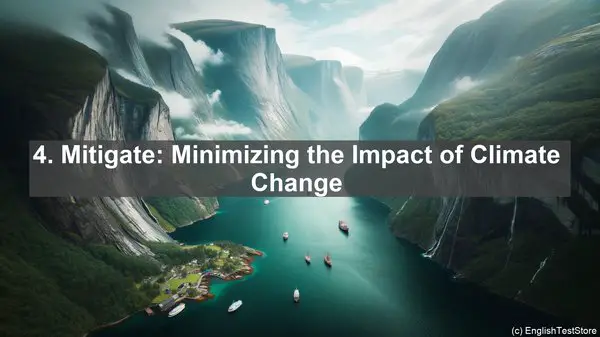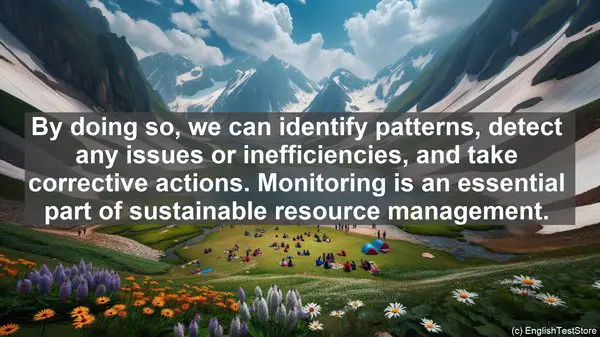Introduction: The Importance of Verbs in Conversations on Renewable Resource Management
Welcome to today’s lesson, where we’ll be diving into the world of renewable resource management. Now, you might wonder why verbs are so crucial in this context. Well, verbs are the action words that allow us to express concepts, processes, and actions related to sustainability. They help us convey our thoughts clearly and precisely. So, let’s not waste any more time and jump right into the top 10 verbs you should know!
1. Conserve: Preserving Resources for Future Generations
When we talk about renewable resource management, the verb ‘conserve’ is at the forefront. It means to protect, preserve, and use resources wisely, ensuring their availability for future generations. Whether it’s water, forests, or energy, the idea of conservation is central to sustainable practices.
2. Harness: Utilizing the Power of Nature
Renewable resources, such as solar and wind energy, are abundant in nature. The verb ‘harness’ refers to the process of capturing and utilizing these resources. It involves setting up infrastructure, like solar panels or wind turbines, to convert natural energy into usable forms. By harnessing renewable sources, we reduce our reliance on non-renewable ones.
3. Promote: Advocating for Sustainable Practices
To bring about change in any field, promotion is vital. In the context of renewable resource management, ‘promote’ means to actively support and encourage sustainable practices. It could involve raising awareness, implementing policies, or even incentivizing eco-friendly behaviors. By promoting sustainability, we create a positive impact on the environment.
4. Mitigate: Minimizing the Impact of Climate Change
Climate change is a pressing issue, and ‘mitigate’ is a verb that holds immense significance. It refers to the actions taken to reduce or alleviate the effects of climate change. This could include measures like carbon sequestration, reforestation, or adopting cleaner technologies. The goal is to mitigate the damage and create a more sustainable future.
5. Adapt: Responding to Changing Environmental Conditions
As the world’s climate patterns shift, the need to ‘adapt’ becomes crucial. This verb implies adjusting to new circumstances and finding innovative solutions. For instance, in the face of rising sea levels, coastal communities might have to adapt by building resilient infrastructure. Adaptation is about being proactive and prepared.
6. Monitor: Keeping a Close Eye on Resource Usage
Effective management requires constant vigilance, and that’s where ‘monitoring’ comes in. To monitor means to regularly observe, assess, and track the usage of resources. By doing so, we can identify patterns, detect any issues or inefficiencies, and take corrective actions. Monitoring is an essential part of sustainable resource management.

7. Collaborate: Working Together for a Common Goal
The challenges we face in renewable resource management are complex and interconnected. ‘Collaborate’ means to work jointly with others, pooling resources, knowledge, and expertise. Collaboration fosters innovation, allows for knowledge-sharing, and ensures a holistic approach to problem-solving.

8. Advocate: Being a Voice for Change
Change often starts with individuals who are willing to ‘advocate’ for it. Advocacy involves actively supporting a cause, raising awareness, and influencing decision-makers. In the context of renewable resource management, advocates play a crucial role in driving policy changes and promoting sustainable practices.
9. Educate: Spreading Knowledge and Awareness
Education is the foundation for any sustainable future. ‘Educate’ means to impart knowledge, raise awareness, and build capacity. By educating individuals, whether it’s through formal channels or community initiatives, we empower them to make informed choices and become active contributors to sustainability.
10. Innovate: Finding New Solutions for Sustainability
Innovation is at the heart of progress, and the realm of renewable resource management is no exception. ‘Innovate’ means to introduce new ideas, methods, or technologies. Whether it’s developing more efficient solar cells or designing sustainable urban spaces, innovation drives the transition towards a greener, more sustainable world.
